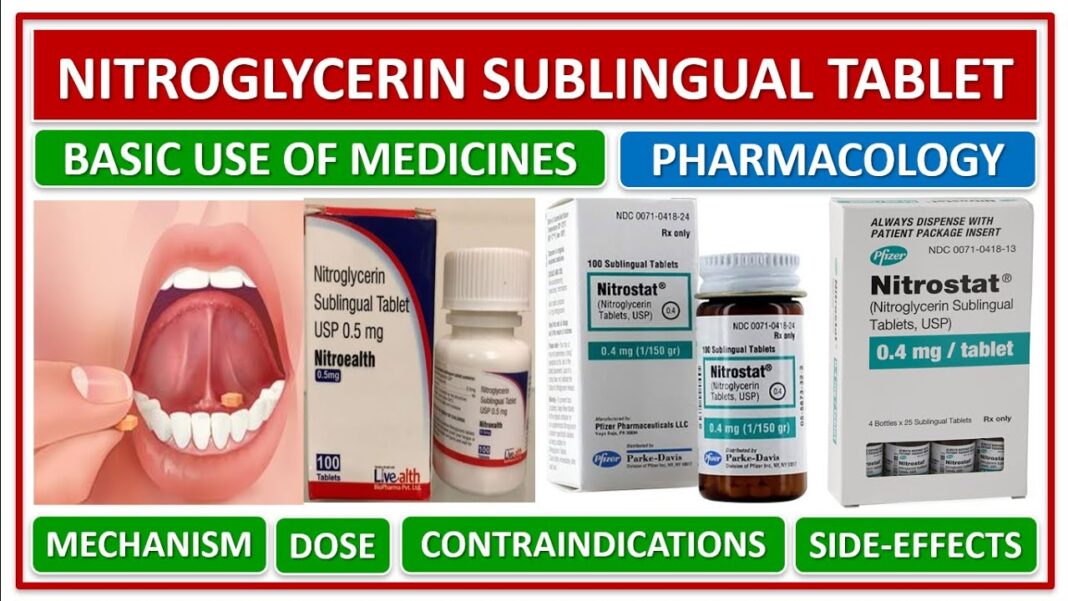Nitroglycerin is a medication used primarily for the treatment and prevention of angina pectoris, a condition characterized by chest pain or discomfort due to reduced blood flow to the heart muscle. Here’s information about its uses, benefits, common symptoms, and potential side effects: Nitroglycerin Tablet Uses Benefits and Symptoms Side Effects

Uses and Benefits of Nitroglycerin:
- Angina Pectoris: Nitroglycerin is commonly used to relieve and prevent episodes of angina, which is typically caused by narrowed or blocked coronary arteries. It works by relaxing and widening blood vessels, increasing blood flow to the heart and reducing the workload on the heart muscle.
Common Symptoms and Side Effects of Nitroglycerin:
- Headache: Headaches are a common side effect of nitroglycerin. These headaches can be mild to moderate and may subside with continued use. If headaches are severe or persistent, consult your healthcare provider.
- Low Blood Pressure: Nitroglycerin can cause a drop in blood pressure (hypotension), leading to symptoms such as dizziness, lightheadedness, or fainting. It’s important to avoid sudden changes in posture and inform your healthcare provider if you experience significant drops in blood pressure.
- Flushing and Skin Reactions: Nitroglycerin can cause flushing (redness and warmth of the skin) due to the dilation of blood vessels. Some individuals may also experience skin reactions, such as a rash or itching.
- Fast Heart Rate: Nitroglycerin can cause an increase in heart rate (tachycardia) in some individuals. This effect is usually transient and not a cause for concern, but if it persists or is accompanied by other symptoms, consult your healthcare provider.
- Nausea and Vomiting: Some individuals may experience nausea or vomiting as a side effect of nitroglycerin.
- Allergic Reactions: In rare cases, nitroglycerin can cause allergic reactions characterized by symptoms such as rash, itching, swelling, or difficulty breathing. Seek immediate medical attention if you experience any signs of an allergic reaction.
It’s important to take
nitroglycerin as directed by your healthcare professional and follow their instructions regarding the dosage and frequency of administration. Nitroglycerin is available in various forms, including tablets, patches, sprays, and ointments, and the specific instructions may vary depending on the formulation.
Inform your healthcare
provider about any pre-existing medical conditions, medications, or supplements you are taking to ensure the appropriate use of nitroglycerin. If you have any concerns or experience troubling side effects while taking nitroglycerin, consult with your healthcare provider for further evaluation and guidance.
Note:
Nitroglycerin is a potent medication used to treat a specific condition, and its use should be under the guidance of a healthcare professional. It is not suitable for self-diagnosis or self-medication.
Nitroglycerin Tablet Uses Benefits and Symptoms Side Effects Nitroglycerin Tablet in hindi Nitroglycerin Tablet in hindi






